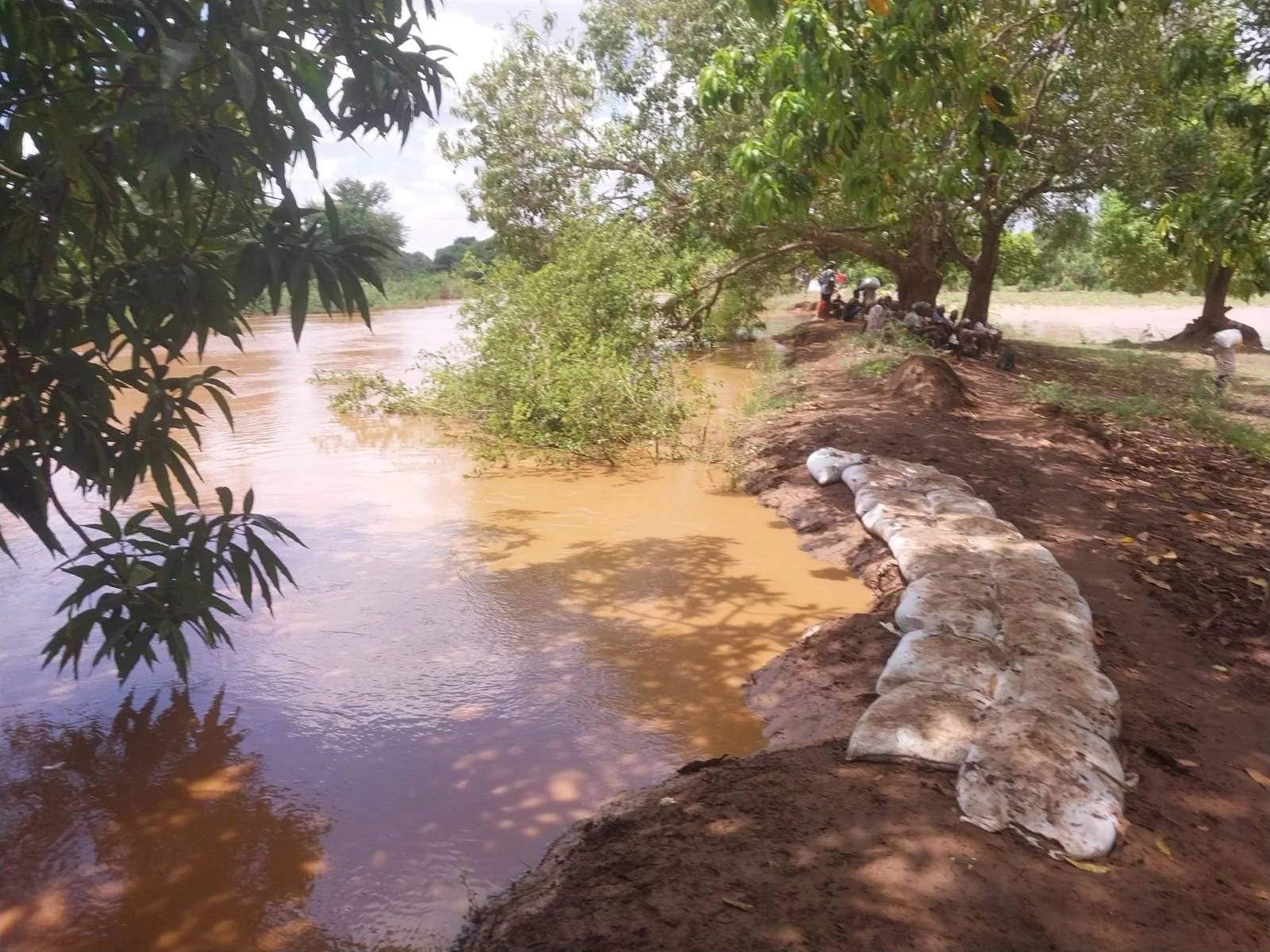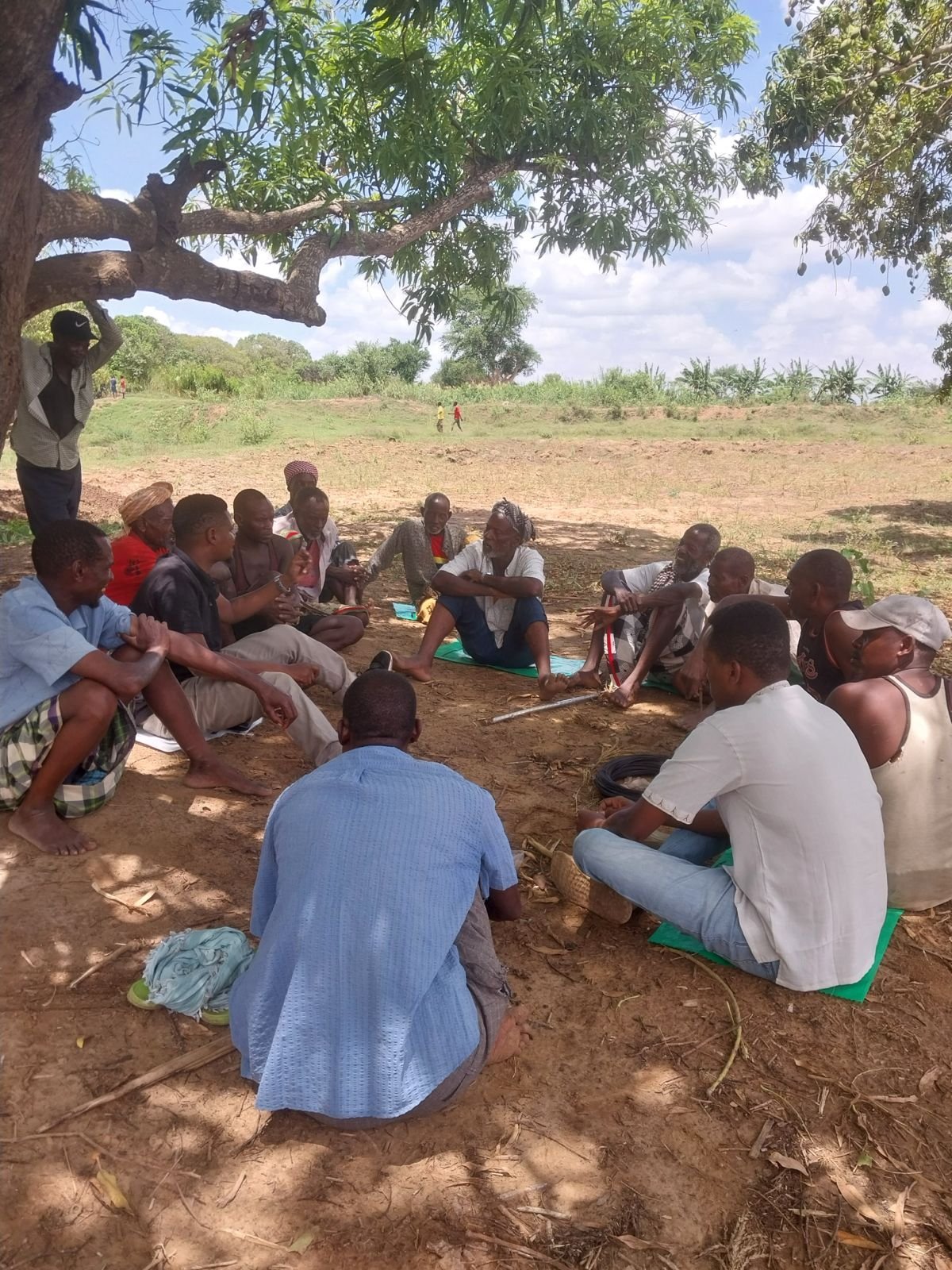Building Resilience and Restoring Peace: Shaqodoon's RAF Project in Jowhar
Location: Jowhar, Hirshabelle State, Somalia
In the face of deep-rooted land conflict and growing climate shocks, Shaqodoon Organization, in partnership with the International Organization for Migration (IOM) under the JOSP program, recently concluded a powerful initiative to strengthen resilience and land tenure in the flood-prone district of Jowhar, Somalia.
The Resilience Design and Land Tenure (RAF) Project tackled two interlinked challenges: climate vulnerability and land insecurity — both of which have historically undermined agricultural livelihoods and social cohesion in the riverine villages of Maandheere and Daymasame.
Nature-Based Solutions to Combat Flooding
The project adopted a community-led, climate-smart approach to restore damaged ecosystems and build local capacity in sustainable agriculture. More than 300 meters of riverbank were reinforced using a layered bioengineering technique that blended traditional sandbag defenses with locally sourced vegetation, including reed grass and erosion-resistant shrubs.
An unexpected flood event early in implementation brought out the best in community solidarity. Over 350 residents — including youth, women, and elders — mobilized voluntarily to contain the flood, stabilize an embankment, and protect nearby farmland. This spontaneous act of unity became a symbol of collective resilience and peaceful cooperation.
A demonstration farm was also established, showcasing regenerative agriculture practices such as water harvesting, crop diversification, and soil restoration. It now serves as a living learning center for surrounding communities.
Equipping Farmers with Tools for Change
Fifty farmers, selected through community consultations, were trained in Resilience Design — a hands-on, holistic farming system that helps smallholders adapt to erratic weather and degraded land. The training covered everything from composting and A-frame mapping to permagarden design and organic pest control.
Farmers left with personal action plans, a deeper understanding of land stewardship, and a commitment to share their knowledge with others.
Addressing Land Conflict at the Roots
Beyond climate adaptation, the RAF Project dug deep into the drivers of land-related conflict in Jowhar's rural areas. Through a series of inclusive community consultations and workshops, Shaqodoon and its partners engaged elders, youth, women, and local government to map out the causes of conflict — from unclear land boundaries and historical grievances, to gender exclusion and weak judicial enforcement.
A key milestone was the development of a phased roadmap for land tenure reform, rooted in the Derisnimo household registration model. This roadmap was co-created by communities and endorsed by district authorities — marking a critical step toward more equitable, transparent, and peaceful land governance.
A Foundation for Long-Term Resilience
What makes the RAF Project unique is not just its impact on the ground — but how it mobilized communities as co-designers and co-implementers of both climate and peacebuilding solutions.
By integrating ecological restoration with participatory land conflict resolution, Shaqodoon has laid the groundwork for a replicable, locally-owned model of resilience that can benefit other districts across Hirshabelle and Somalia.
As Shaqodoon continues to support these communities through follow-up and coaching, the RAF Project stands as a testament to the power of inclusive development, local leadership, and nature-based action.








